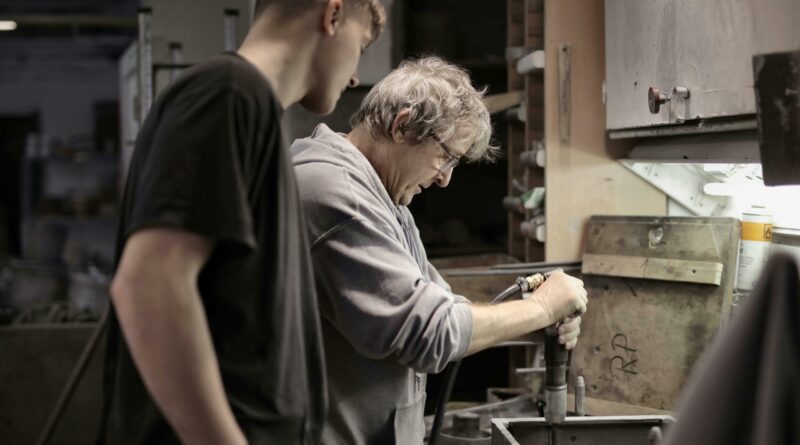Esej “The question of legacy, death and remembering”
Autor: Matej Potančok
“Some day soon, perhaps in forty years, there will be no one alive who has ever known me. That’s when I will be truly dead – when I exist in no one’s memory. I thought a lot about how someone very old is the last living individual to have known some person or cluster of people. When that person dies, the whole cluster dies, too, vanishes from the living memory. I wonder who that person will be for me. Whose death will make me truly dead?”
― Irvin D. Yalom, Love’s Executioner and Other Tales of Psychotherapy
The question of what kind of legacy I want to leave behind is certainly a part of each of us. We try to leave behind something significant, whether in the form of something physical like a house, a piece of land or something abstract like when a scientist leaves behind a piece of knowledge. However, the question of being remembered depends on your definition of death.
From a biological perspective, death could be defined as permanent cessation of brain function and other life processes. From a cultural and personal perspective, death can represent many things. In Western cultures, one is not really dead. He rests in eternal life. And that is not only subject of Christianity but also most of the pagan religions. Greek pantheon person rested in Hades and could be brought back to real world from underground. That meant that ancient Greeks did not consider one dead.
In the ancient Mesopotamian epic of Gilgamesh, the theme of immortality is central to the story. Gilgamesh, the king of Uruk, is said to be two thirds god and one-third human and is driven by his desire to find a way to achieve immortality and escape death. Throughout the epic, Gilgamesh embarks on various adventures and encounters various characters who offer advice and guidance on how to achieve immortality. Despite these efforts, Gilgamesh eventually comes to realize that immortality is beyond his reach and that death is an inevitable part of the human experience. However, the epic also suggests that despite death, there is a way for Gilgamesh to achieve a kind of immortality through his legacy and the stories that are told about him. This idea is reflected in the final lines of the epic, which state that Gilgamesh will live on as long as his name is remembered, and the story of his adventures is told. Thus, in “Gilgamesh,” the theme of immortality is explored through the idea that while physical immortality may be unattain able, a kind of immortality can be achieved through one’s impact on the world and the memories of others.
Eastern religions offer us different conceptions of death. In Hindu religion death is seen as a transition from one stage of life to another. The soul is believed to be immortal and reincarnated into another body after death. So if we consider soul as something that determines if one is alive or not Hindu says that we are immortal.
However in Confucianism death is seen as a natural part of life and a transition to an afterlife, which is believed to be a continuation of life on earth. Confucianism also places a strong emphasis on ancestor worship and the importance of honouring one’s ancestors after death. Confucians believe in the importance of ancestor worship as a way to demonstrate respect and gratitude to one’s forebears, who are seen as sources of moral guidance and support. Confucians also believe that by honouring their ancestors, they can ensure future wellbeing. ancestor worship often involves offering different offerings to the ancestors, as well as visiting and maintaining ancestral graves. Confucians also celebrate ancestor-related holidays, to pay homage to their forebears and reflect on the values and traditions that have been passed down from generation to generation. Ancestor worship is considered to be a duty of filial piety, which is the Confucian ideal of respect and devotion to one’s parents and ancestors. Filial piety is seen as a key virtue in Confucianism and is considered essential for maintaining good relationships within families and society as a whole.
But venerating or honouring ancestors is represented in many Western cultures too. Funerals can be way to honour dead. Sadly, the most remembered funerals are of celebrities and not of people who tried to change our society such as politicians, scientists, and artists. Another way could be memorials. These tend to last for centuries. Even now archaeologists are finding thumbs, statues, and belongings of death. Good example could be Tutankhamun.
His thumb was found as one of the last in valley of the kings. Until then there was no evidence that at he was ever pharaoh of Egypt. But with the finding of his thumb, he became one of the most famous historical rulers of the world. So, his legacy was once again reinstated despite the fact that it was set to be forgotten. But memorials do not need to be so pompous as luxurious thumb. We see often plaques being placed on walls of buildings or streets being named after important persons, things, or events. For example, I was during summer traveling to my work with bus. And this bus had stop on Vajanského nábereží. I did not paid attention to the name. But one day I stared wondering who he was. This way his legacy stayed preserved.
In Western cultures are also common days of reembrace. In these days we venerate and try to remember our forefathers. But in many families these are not only days that they remember their deceased close ones. Often there are told memories and stories about them. In my family these are quite common. I have heard many stories about my great grandfathers. How they fought in war with partisans or about my great great great great great great grandfather how he accompanied Samo Chlapuka in Poland and later hid him from pandúrs. This way even if did not meet them I can in some sense remember them, be proud of them and they are not really gone.
Most common way for person to be remembered is to leave legacy behind. People want to make a positive impact on the world. They want to leave their scratch and want to their legacy reflect that in the most bright way. This legacy tent to inspire others to make a difference too. But I think in today’s world with social media there far too many influencers who tries to leave a massage in world so leaving legacy that is worth following or remembering. But for some people it could be way of fulfilment. Leaving legacy that allowed them to explain their thoughts, passion, creativity, and purpose in life.
There are many ways to leave a legacy. Making a donation to a cause that is important to you, your community or even to your country, such as a non-profit organization or a scholarship fund. Another way to leave legacy is create something from writing a book, painting a painting, or composing a piece of music, starting a business and creating a new innovative product. Implementing sustainable practices, preserving natural resources trying to protect nature can leave significant print that can improve our legacy. Making a positive impact on your community through volunteering, activism, or civic engagement can be a way to leave a legacy. Donating to schools or educational programs, or establishing a scholarship fund, can be a way to support education and help future generations. Also openly encourage and promote the arts, such as music, theatre, or visual arts, leaves heritage worth of remembering. Supporting scientific research and discovery can be a way to leave a lasting impact on the world. For me mentoring and sharing your knowledge and experience with others is important way to leave legacy. The help that we offer is personal and we are helping with growth of others is noble cause worth of remembering. Yet in my opinion the most impactful way of leaving a legacy is to settle and have family. Your family will remember you for long time and even after centuries there will be your descendants. The most important aspect of leaving a legacy is to identify what is meaningful to you and what kind of impact you want to make, and then find a way to make that impact a reality. I found myself my times wondering what kind of impact I want to leave behind. I did not find the answer yet. But I think being a good person, helping others, starting a family will be great to begin.
Externí autori
- Externí autori#molongui-disabled-link
- Externí autori#molongui-disabled-link
- Externí autori#molongui-disabled-link
- Externí autori#molongui-disabled-link



